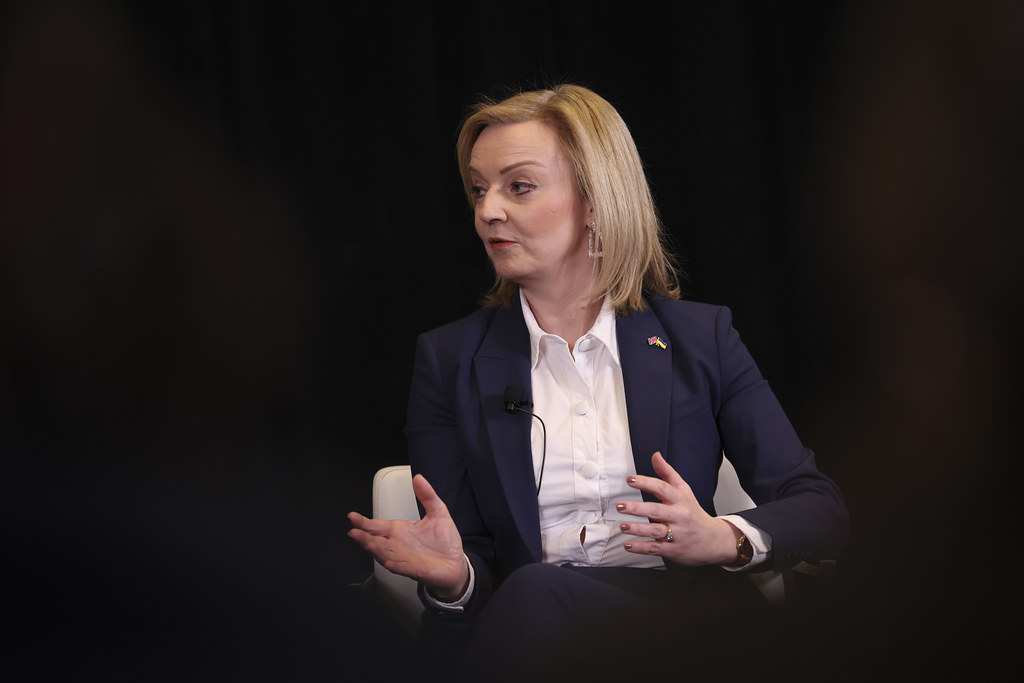LONDON (Parliament Politics Magazine) – Following the mini-budget, Prime Minister Liz Truss admitted there had been “disruption” in the UK economy.
She said in a column in The Sun that she had “acted decisively” and would maintain an “iron grip” on the country’s finances.
Last week, the government announced £45 billion in tax cuts financed by borrowing, but it excluded the customary economic analysis of the proposals.
That alarmed investors, leading the pound to fall, and the Bank of England was forced to intervene to calm the markets.
Calls for Ms. Truss to roll back the cutbacks and speed up the release of the independent financial watchdog’s economic projections and assessment of her tax plans have been met with resistance.
After meeting with the Office for Budget Responsibility (OBR) on Friday, the prime minister stated that she was “committed” to presenting the OBR prediction on November 23, the same day the chancellor is scheduled to present further economic measures.
However, a few Conservative lawmakers want this to happen sooner to calm the stock system after tumultuous trading.
The Treasury contends that it needs to hold off till more changes are declared.
In her article for the Sun, Ms. Truss stated: “I am going to do things differently. It involves difficult decisions and does involve disruption in the short term.”
She reaffirmed her intention to “get the economy growing,” with plans to do so anticipated to involve actions in eight sectors: energy, agriculture, mobile and internet, housing and planning, corporate regulation, immigration, childcare, and financial services.
She also vowed that she would have an “iron grip” on the country’s finances.
Her chancellor, Kwasi Kwarteng, asserted that November’s statement would include a “credible plan” to restore the public finances and a “commitment to spending control.”
Simon Clarke, a senior minister, advised that the government needs to provide more details on how it would manage expenditure while also fostering economic development.
He said that in order to “trim the fat” off public spending, the administration was aiming to make considerable cuts.
In order to pay for the mini-budget measures, Ms. Truss said on Thursday that she was looking for cutbacks all across the government.
Peter Aldous, a Waveney MP, said the proposal’s timing last Friday was “hopelessly wrong” and that the remaining elements should be moved forward to October.
Sir Ed Davey, the leader of the Liberal Democrats, claimed that by holding off until 23 November, the government was enabling the UK economy to “fly blind” for 2 months.
What is the Office for Budget Responsibility?
The independent auditor of the government budget is the Office for Budget Responsibility.
It typically creates economic estimates twice a year to go along with each spring statement and autumn budget.
It examines proposed government actions, such as raising taxes or borrowing more money , and forecasts their potential effects on the general state of the economy.
A good projection encourages people to invest in the UK economy, but a bad one is likely to have the opposite impact. This is why these forecasts are so significant.
When making major decisions, the government is always free to ask the OBR for projections.
However, it declined the OBR’s offer before the mini-budget last week. This is considered to have damaged market confidence.
Due to this, the pound’s exchange rate with the dollar fell on Monday to its lowest level in 37 years before rising back to its prior level.
The pound fell to a 37-year low of $1.03 on Monday as a result of the International Monetary Fund criticising the government’s tax-cutting proposal.
On Friday, the value of the pound reached $1.12, or almost where it had been before the announcement of the mini-budget.
Despite this, Standard & Poor’s on Friday changed the prognosis for its AA credit rating for British government debt from “stable” to “negative” due to the possibility of increased borrowing required to pay for the commitments.
The Conservatives have had some of their lowest opinion poll numbers in more than 20 years in recent days.
The party scored 28% in a Survation poll released on Thursday, more than 21 points below Labour, while the Tories scored 21%, 33 points behind, in a separate YouGov poll.
Ministers should “get back to Parliament, revoke the changes, and start again to try to rebuild confidence,” according to Jonathan Reynolds, the shadow business secretary for the Labour party.
Martin Vickers, a Conservative MP, asked the prime minister to refrain from eliminating the 45p tax rate and the ceiling on bankers’ bonuses, calling the decision “a political own goal.”
The mini-budget was “unashamedly pro-growth,” according to another Tory backbencher named Andrea Leadsom, and the markets were “wrong to be jittery” about the adjustments.






